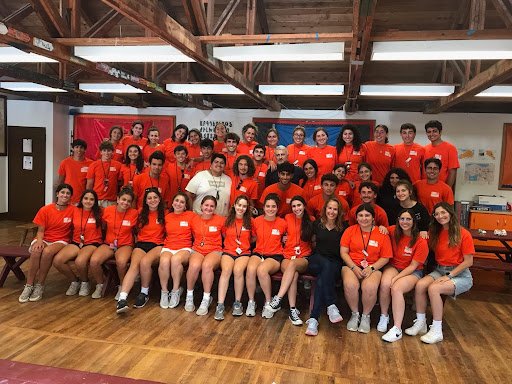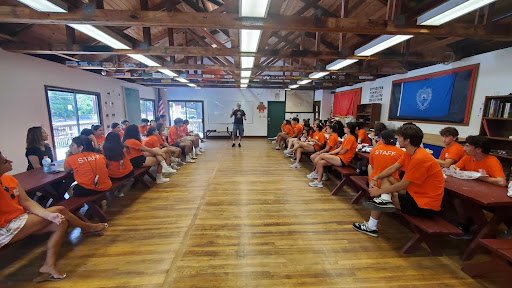
By Nareg Sakayan
At the end of AYF Camp Haiastan’s first session, former ARF Bureau member and pillar of the Armenian community Aram Kaloustian addressed our young and vibrant Camp Haiastan staff. He imparted some very important reminders to the staff and shared prescient advice about the future of Armenian summer camps like ours.
The first part of the discussion was based around the similarities and differences between Camp Haiastan and its west coast counterpart founded in 1972, AYF Camp. The majority of day-to-day activities were similar between the two camps, both of them taking part in events like song night and olympics, where the camp is split into three competing teams for cultural and athletic competitions. What is likely the most important commonality between the two camps was the “magic” that occurs during a session. At AYF camp, it is when the seven-year-old fluent camper teaches the 15 year old who has no understanding of the Armenian language to memorize a song by heart in just a few days. At Camp Haiastan, it’s when the cabin of eight year olds struggling to learn a song finally and miraculously sing Khrimian Hayrig flawlessly 10 minutes before the start of song night. In both cases, these camps foster an environment for diasporans to connect with their mother tongues, regardless of how much they do or do not know.
Kaloustian shared that when he visits camp, his first stop is paying homage to the bust of Karekin Njteh in the Cabin Circle. It made the room reflect upon how every time we step into the circle or stand at attention for flag ceremonies, Karekin Njteh watches the fruition of his grand vision for the Armenian youth. The grounds of Camp Haiastan are truly hallowed ones, trod and built by giants of the community back in the late 1940s. The foresight exercised by those AYFers and ARFers is quite possibly the most beneficial action taken for the diaspora. To be able to say that several of the staff in that room are descendants of the founders and constructors of the camp is a testament to the ongoing Armenian cause that never rests.

None of what’s been described would be possible without the logistical help and financial support of the ARF. The continual willingness of the ARF and AYF to help expand the capacity and outreach of the camps is precisely the reason why every single session at Camp Haiastan this year has had a record amount of attendance. For example, one of the teen session Hye Jham lectures discussed opportunities for Armenian youth to stay involved in the community. The Armenian National Committee of America’s Summer Academy was brought up to the energetic 15- and 16-year-old campers. At the end of the session, there were 40 applications for 12 spots for the ANCA Haroutioun and Elizabeth Kasparian Summer Academy. Instead of excluding eager Armenians from opportunities, Kaloustian explained how it is the Tashnagtsagan way to create even more chances and spots for our youth to excel. When community leaders spark fire and curiosity in the youth, the demand for opportunities like the Summer Academy grows exponentially.
Since its foundation, Camp Haiastan has launched generations of campers and staff into other ARF-supported programs, organizations and leadership roles. As Kaloustian demonstrated, being on the west coast or the east coast does not bar either side from following the same path that our forebears took to rise up in the Armenian community and guide our youth forward. The 2022 AYF Camp Haiastan staff is incredibly fortunate to have hosted Unger Aram, and we thank him for his continued effort and time devoted to the Armenian Cause.



Be the first to comment